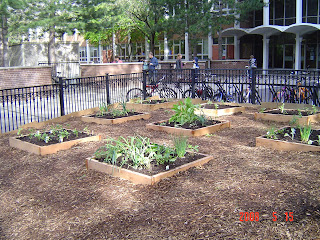During the April 1st School Food Gardens Training workshop some of you requested for some of the information we discussed to be posted on the blog. Well, here it is:
Discover Healthy Eating http://www.toronto.ca/health/dhe_index.htmThis curriculum support resource offers a choice of teaching activities that correspond to the Health and Physical Education Curriculum (1998). Background information, glossary and a listing of additional resources are also included. Please note: Discover Healthy Eating! is being revised according to the 2007 version of Canada's Food Guide.
Ontario Agri-Food Education –
http://www.oafe.org/OAFE receives funding from the Ontario Ministry of Agriculture, Food and Rural Affairs. Its goals are to provide high quality learning material for Ontario educators, as well as to enhance the learning experiences of students in Ontario. The website includes resources for download or to order ($ and free), and information on workshops.
Foodland Ontario –
http://www.foodland.gov.on.ca/This website is an excellent resource to tap into for recipes, what vegetables & fruit are currently in season, storage, preparation, and nutrition information.
Canadian Produce Marketing Association -
http://www.cpma.ca/ This website is another excellent resource to tap into for information on vegetables and fruit, such as nutrition, selection, storage and preparation. Go to the “Health and Nutrition” section.
Hope this helps!























